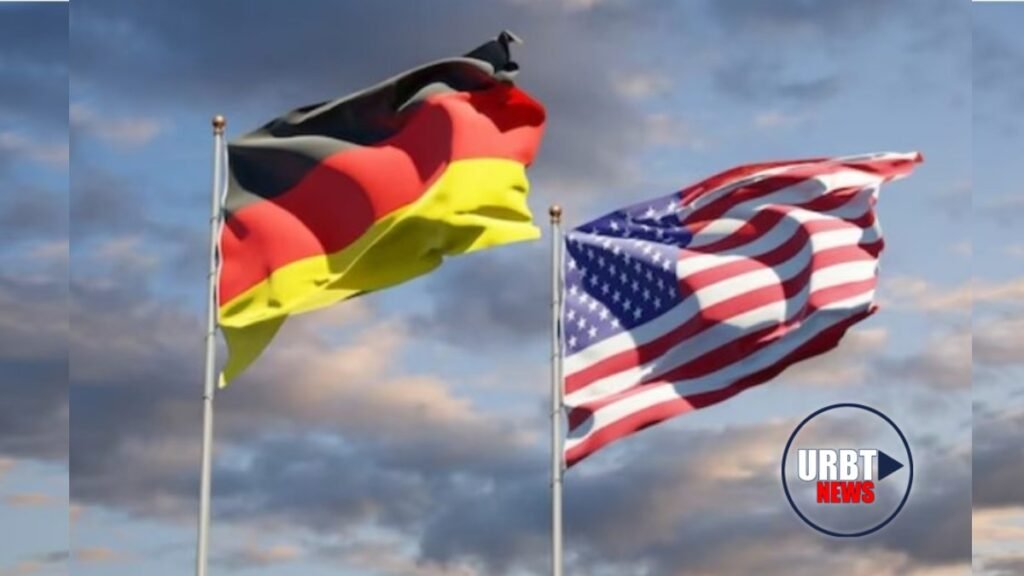
Exploring BRICS Expansion
World News
Exploring BRICS Expansion
BRICS is a powerful grouping of the world’s leading emerging market economies. Six more countries are set to join the BRICS bloc.
Published
2 years agoon

Exploring BRICS expansion. On June 16, 2009, the 1st BRIC summit was held in Yekaterinburg, Russia, following a series of high-level meetings. The BRICS bloc was formed in response to the changing global economic landscape to encourage cooperation on common challenges to challenge the West’s hegemony. South Africa joined the predecessor BRIC to form BRICS in 2010.
The acronym BRICS refers to the powerful grouping of the world’s leading emerging market economies, which include Brazil, Russia, India, China, and South Africa. Goldman Sachs economist Jim O’Neill coined the term “BRIC” or “the BRICs” in 2001 to describe fast-growing economies that he predicted would collectively dominate the global economy by 2050.
Representatives from the BRICS emerging group gathered in Johannesburg for their 15th summit, the first in-person since the COVID-19 pandemic began.
BRICS Expansion
The BRICS summit ended on a high note, with the alliance welcoming six new members. These meetings are generally held to improve the economic conditions of the BRICS countries. They also provide their leaders with the opportunity to collaborate on these efforts.
When the delegations arrived in Johannesburg, all but one country had an initial list of candidates for membership.
BRICS leaders have decided to invite six more countries to join their alliance. Argentina, Egypt, Ethiopia, Iran, Saudi Arabia, and the United Arab Emirates have been invited to join BRICS. This is according to South African President Cyril Ramaphosa, who hosted a three-day meeting of the emerging markets group this week in Johannesburg. Their accession will take effect on January 1, 2024.
“We value the interest of other countries in building a partnership with BRICS,” Ramaphosa said. “We have tasked our Foreign Ministers to develop the BRICS partner country model further and a list of prospective partner countries and report by the next Summit.”
Russian President Vladimir Putin chose not to attend the summit because he faces arrest under a war crimes indictment issued by the International Criminal Court in The Hague for Russia’s invasion of Ukraine. He chose to participate virtually instead, sending a video message.
The decision to broaden the group reflects a lack of progress in deepening the existing BRICS alliance, which, despite accounting for one-third of global GDP, has diverging interests ranging from China’s rise as a global superpower to India’s nonalignment to Brazil’s status as a farm exporter. Some new members, most notably Saudi Arabia and Iran, have a history of strained relations, with little prospect of coherence beyond strengthening the bloc’s representation of the Middle East and Africa.
The US and Germany React

PICUTRE: (From left to right) Germany and United States flag waving against the backdrop of a partially cloudy sky. PHOTO: COURTESY OF: Freepik.
Exploring BRICS Expansion. Earlier this month, it was reported that more than 40 countries, including Iran, Saudi Arabia, the United Arab Emirates, Argentina, Algeria, Bolivia, Indonesia, Egypt, Ethiopia, Cuba, the Democratic Republic of the Congo, the Comoros, Gabon, and Kazakhstan, had expressed interest in joining the forum, according to 2023 summit chair South Africa.
The United States, Europe, and other Western allies are closely monitoring the BRICS expansion and de-dollarization agenda. The United States, Germany, and the European Union have responded to the recent BRICS expansion and de-dollarization efforts.
A Word from the White House
Karine Jean-Pierre, the White House Press Secretary, stated that the United States will not prevent other countries from selecting trading partners. She emphasized that the US’s focus is on trade with all countries and that the US will not interfere in their internal affairs.
“US policy does not ask our partners to choose between the United States and other countries. We have repeatedly emphasized that the US does not want to limit countries’ partnerships with other countries. But we want countries to have choices on delivering results to their citizens as well,” she said.
Germany’s Foreign Minister Speaks
BRICS expansion does not concern Germany, according to Foreign Minister Annalena Baerbock. BRICS expansion does not worry Berlin. She emphasized that all countries can form alliances based on their national interests.
“In times like these, every country in the world is aware of the importance of cooperation and partnership,” she said. “Every country must keep asking itself: Which partnership best suits its own values and interests? Which are of most benefit to it in the long run?”
Baerbock stated that Germany has communication channels and trade agreements with all BRICS members except Iran. She also noted that the European Union is willing to partner with BRICS members. As a result, the BRICS expansion has had no effect on global markets for the United States and Germany.
BRICS: Exploring The Potential
Exploring BRICS Expansion. The potential impact of BRICS includes strengthening economic integration within BRICS, reducing the influence of the US on the global stage, weakening the standing of the US dollar as a global reserve currency, implications for a more multipolar world economy, challenges and opportunities for the United States, impact on the US dollar’s value, BRICS expansion and economic changes, potential effects on global financial affairs, expert opinions and predictions, and potential implications for dollar denominated debt.
Strengthening Economic Integration within BRICS
A unified BRICS currency would undeniably strengthen economic cooperation among its member countries. The increased ease of trade and cross-border transactions may spur economic growth, fostering stronger ties and partnerships among the BRICS nations.
Reducing the Influence of the US on the Global Stage
The US dollar wields enormous power in international affairs. Introducing a BRICS currency could erode this dominance, putting the US’s ability to use economic strength as a tool for geopolitical influence in jeopardy.
Weakening the Standing of the US Dollar as a Global Reserve Currency
Suppose BRICS nations choose to hold significant portions of their foreign reserves in their new currency. The US dollar’s dominance as a global reserve currency may be challenged in that case. This shift could cause the dollar’s value to fall, altering global trade dynamics.
Implications for a More Multipolar World Economy
The world may be undergoing a shift toward a more multipolar economic structure. Introducing a BRICS currency would diversify reserve currency options, paving the way for a more balanced and equitable global financial system.
Challenges and Opportunities for the United States
Suppose a BRICS reserve currency becomes a reality. In that case, the US may face diminished global influence challenges. Still, the actual impact will depend on various geopolitical and economic factors. Nonetheless, it may open up new trade and investment opportunities with BRICS nations, fostering mutual growth.
Impact on the US Dollar’s Value
The BRICS nations’ collective decision to manage their vast foreign exchange reserves may have implications for the value of the US dollar. There are several possible outcomes, ranging from no impact to significant dollar depreciation.
BRICS Expansion and Economic Changes
Its economic and political clout will grow as the BRICS grouping expands to include more countries. Such an expansion could put the US’s economic dominance under further strain.
Potential Effects and Economic Changes
The emergence of the BRICS currency can potentially restructure global financial systems. The implications could range from reshaping trade agreements to influencing the operations of international financial institutions.
Expert Opinions and Predictions
The academic and financial sectors have differing perspectives on the potential impact of the BRICS currency on the US economy. Experts are scrutinizing every detail of the evolving situation.
Potential Implications for Dollar Denominated Debt
Countries with significant dollar-denominated debts may see a BRICS currency as a way to alleviate their burdens. However, potential fluctuations in the value of the new currency could introduce risks.
BRICS and the United Nations
The BRICS have been vocal in their support for the UN architecture, viewing it as a means of mitigating the influence of ‘Western’ forms of intervention. In essence, they have all become key players in the UN system’s operations.
Analysts believe that while the BRICS nations’ clout is likely to grow, the bloc is more likely to offer piecemeal economic and diplomatic alternatives to the US-led global order than to dramatically replace it. This could lead to more tensions with the West as the grouping’s leaders seek to chart their own course in an uncertain world. However, in order to remain effective, the BRICS will need to manage the disparate priorities of its member countries, which will be a difficult challenge for the grouping to overcome.
The Waiting Game
This new environment gives the world’s nations with relatively low economic and industrial development options for responding to rising tensions among major powers and positioning their countries amid excellent power competition. Prospective members are attracted to BRICS because they do not have to commit to an alliance.
Experts say that tangible economic benefits may be some time away. Still, the symbolic benefit of joining an alliance separate from, or opposed to, Western interests is significant.
DOWNLOAD THE URBT NEWS APP Exploring BRICS Expansion
You may like
-


Single Men & Step-Fatherhood: Crucial Considerations Before Taking the Plunge
-


Jesse Jackson Dies at 84: Civil Rights Icon’s Legacy
-


Minority Births Surpass White Births: A Demographic Shift Impacting America
-


Hot Girl Summer: Your Guide to Confidence, Fun, and Intentional Living
-


Shrek as a Cautionary Tale: Unmasking the Ogre’s Life Lessons
-


Test Your Spelling Skills: How Good Are You Without Technology?


